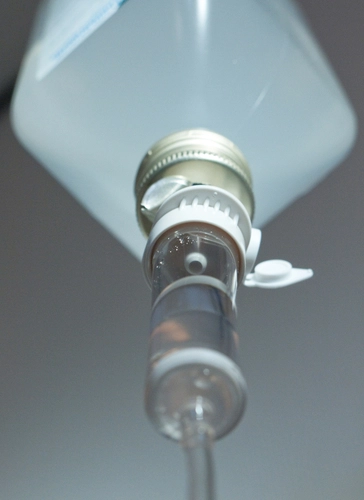Oncology & Hematology Coding Alert
Capture Colorectal Cancer Screenings
Question: Our physician often does colonoscopy, barium enema, occult blood tests, and others as screening measures for colorectal cancer in patients who have a family history of colorectal cancer or have any other risk factors for potentially developing colorectal cancer. What HCPCS codes can possibly be reported for colorectal cancer screening in Medicare patients with high risk of colorectal cancer? Are the same codes applicable to patients who are not at very high risk of developing colorectal cancer?
New Mexico Subscriber
Answer: You can use the following HCPCS codes with Medicare claims for colorectal cancer screening services for high-risk patients:
- G0104 (Colorectal cancer screening; flexible sigmoidoscopy)
- G0105 (Colorectal cancer screening; colonoscopy on individual at high risk)
- G0106 (Colorectal cancer screening; alternative to G0104, screening sigmoidoscopy, barium enema)
- G0120 (Colorectal cancer screening; alternative to G0105, screening colonoscopy, barium enema)
- 82270 (Blood, occult, by peroxidase activity (e.g., guaiac), qualitative; feces, consecutive collected specimens with single determination, for colorectal neoplasm screening…)
- G0328 (Colorectal cancer screening; fecal occult blood test, immunoassay, 1-3 simultaneous).
For billing a colorectal cancer screening test for an average/ no risk individual, you should choose from these two HCPCS codes:
- G0121 (Colorectal cancer screening; colonoscopy on individual not meeting criteria for high risk)
- G0122 (Colorectal cancer screening; barium enema).
You submit code G0121 when the patient fits the once every 10-year interval. If you bill any earlier than the 10-year period, you should not be surprised to see the Medicare denial. If the last colonoscopy was less than 10 years ago, your physician may not be able to bill the patient for the service unless an Advanced Beneficiary Notice was obtained.
Note: The screening HCPCS procedure codes are used when the patient is asymptomatic. HCPCS codes for the tests should then be chosen based on the documented risk application to the patient’s past or family history.
Separate screening from diagnostic services: You should not confuse codes used to report colorectal screening services with the CPT® codes used to report diagnostic services.
If the patient comes in with a symptom such as blood in stool and the gastroenterologist performs a colonoscopy, then you should bill the appropriate sigmoidoscopy or colonoscopy procedure codes 45330 (Sigmoidoscopy, flexible; diagnostic, including collection of specimen[s] by brushing or washing, when performed [separate procedure]) or 45378 (Colonoscopy, flexible; diagnostic, including collection of specimen[s] by brushing or washing, when performed [separate procedure]) for the diagnostic service. Likewise, fecal-occult blood tests for diagnostic evaluation of symptomatic patients should be billed using the CPT® code 82274 (Blood, occult, by fecal hemoglobin determination by immunoassay, qualitative, feces, 1-3 simultaneous determinations).
Important to note: The fecal occult blood test is typically a paper card the patient is given, takes home, collects the samples and returns the card. Medicare will only reimburse for performed laboratory tests therefore this cannot be reported until a result is obtained. If the card isn’t returned and the test cannot be run, nothing can be reported.
Check follow up diagnostic confirmation: If your physician converts a screening test into a diagnostic endoscopy due to abnormal findings, you should bill the appropriate CPT® code with modifier PT (Colorectal cancer screening test; converted to diagnostic test or other procedure) instead of the screening code.
Related Articles
Oncology & Hematology Coding Alert
- Radiation Oncology:
Analyze 4 Common FAQ Answers to Avoid Radiology Oncology Coding Errors
Here’s the difference between basic dosimetry and special dosimetry. Oncology coding can blur the lines [...] - MythBusters:
Shatter These 4 Myths to Achieve Aftercare Coding Perfection
Highlight the codes you’ll most often see in your oncology practice. When you think of [...] - Practice Management:
No-Show Patients? Follow This Step by Step Guide on Coding for Missed Appointments
Here’s why 99199 can be confusing. A patient is scheduled for a consultation but they [...] - You Be the Coder:
Capture Colorectal Cancer Screenings
Question: Our physician often does colonoscopy, barium enema, occult blood tests, and others as screening [...] - Reader Question:
Too Many Modifiers? Check Modifier 99
Question: We have a small practice in a designated health professional shortage area (HPSA). Because [...] - Reader Question:
Catheter Cost Is Included In 51702
Question: For a patient with a urinary catheter, can we bill for the Foley itself [...]




